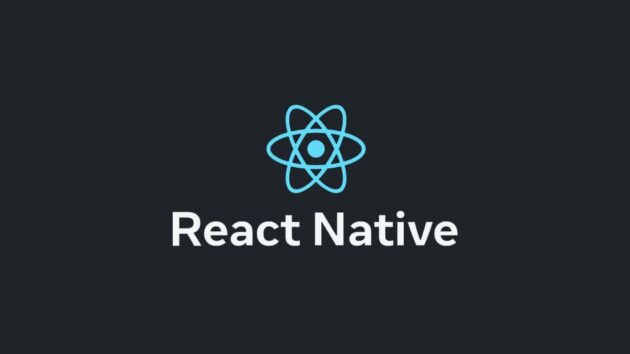Which is better for Fintech app?
FinTech apps have changed the game in the financial industry. If you want to develop your fintech app and are stuck on choosing an app development approach, this blog is for you.
Fintech apps save people from many complications that make our life difficult. They make daily transactions simple, secure and fast. So the question is what makes these apps user-friendly? Of course, the frameworks and programming languages make them amazing apps.
There is a long-standing debate – “React Native vs Hybrid: Which is a better platform for fintech app development?” And which is suitable for start-ups that bring the best quality with low development costs.
Many expert developers say that hybrid apps develop quickly and are more affordable. Also, it is difficult to define the advantages and disadvantages of the different frameworks before working with one. Statistics show that by 2026, consumers will download 143 billion mobile apps from the Google play store and 38 billion downloads from the apple app store.
During the development of a FinTech app, various criteria are taken into account when developing a FinTech application
- The successful fintech app has the best UI/UX features.
- Strong security ensures data protection by offering the best security services.
- The best in terms of performance and ease of use.
These are the factors you should consider when creating a fintech app. Let’s start the blog with Native apps.
What is a Native App?

Simply put, native apps are designed specifically for a specific platform. A native app is developed within a mature ecosystem. By using the native language, the app will only be used for the specific operating system.
Also, Java is used for native Android applications, and for iOS applications Swift or Objective-C languages are used. Many developers choose native apps because they offer exceptional performance. We can say that every framework has advantages and disadvantages, but developing a fintech app is a complex task. When it comes to providing better performance for fintech apps, React Native is the best.
Let’s look at some pros and cons of native app development.
Benefits of Native App Development

- They offer better performance and are more reliable because they are built within a framework native to the platform.
- They provide the best user experience as it allows developers to manage and resolve security issues than hybrid apps.
- Native apps provide the best data protection and security.
- With built-in features, users can easily access them on their devices such as address books, cameras, GPS and many more.
Recommended for you: 10 Reasons to Choose No-Code Development Approach for Mobile App Development.
Disadvantages of Native App Development

- It takes more time to launch an app on two platforms because development can take from 6 months or more.
- Native app developers are less in the market as developing native apps required a certain level of expertise in tools and languages.
- Building two different apps is expensive.
When should you choose React Native?

Instagram, Walmart, Airbnb and many other names use React Native for creative applications. Here are several reasons why you should choose React Native for fintech app development.
- When you are ready to patiently launch your solutions.
- You are prepared for two-part team, cost and time.
- There are no budget problems.
If the answer is Yes to all the points above and you can manage all the above things, then you can choose React Native for fintech app development. Otherwise, you can choose hybrid for app development.
Also, if you choose React Native for your fintech app development, your app will be more user-friendly and secure and provide the best speed than other apps.
We recommend React Native because it is best for developing a fintech app. It is like a future investment.
Tools required for native Android apps are mentioned below:
Tools required for iOS app are mentioned below:
Some of the best native apps are Google Maps, Spotify, Artsy and Pinterest. In the next section, we will discuss hybrid apps.
What is a hybrid app?

Hybrid apps provide solutions for both native apps and web apps. Hybrid apps allow developers to use a single codebase that can operate across different platforms. You can easily create a fintech app for start-ups by choosing a Hybrid platform.
Also, developing hybrid apps is easy and economical compared to native apps. You can encrypt the code and use it again. The performance and user experience are similar to native apps. Frameworks for hybrid app development include Visual Studio, Ionic, and Apache Cordova.
Let’s look at some pros and cons of hybrid app development.
Advantages of developing hybrid apps

- It has a single code base that can be used on multiple platforms. They are easy to build and take less time to enter the market. If you compare it to building two native apps, hybrid apps build 20-50% faster.
- You can easily find hybrid app developers compared to native app developers because hiring hybrid app developers is cheaper. Developing and maintaining a hybrid app for Android and iOS costs less compared to developing two native apps.
- It is easier to develop new features and deploy them on hybrid compared to native apps.
- By choosing a hybrid solution for your app, you can easily update it, repair it and extend its functionality at a lower cost.
Disadvantages of developing hybrid apps

- Low performance compared to integrated apps.
- Difficult to debug.
- They have limited support for third-party apps.
- Less secure due to limited developer options to implement security features.
- Hybrid apps do not provide offline support.
By going through the advantages and disadvantages of hybrid apps, you can easily compare native and hybrid and choose what works best for you.
You may like: 15 major challenges in mobile app development you need to know.
When Should I Choose a Hybrid App for Fintech App Development?

Hybrid apps are great for startups as they provide high development speed and cost-effective nature. If you plan to launch MVP (minimum viable product) with a limited budget and with tight deadlines, hybrids are best.
Also, hybrid apps are simple, develop faster than native apps and are cost-effective. If the UX requirements of fintech apps are high functionality and performance, consider React Native for developing fintech apps.
Hybrid apps are less secure, which makes them not ideal for Fintech and banking solutions. As fintech apps required strong security for users. Here are some tools for developing hybrid apps:
Some of the best hybrid apps are Instagram, JustWatch, Gmail and Airbus. Let’s compare these in the next section.
React Native vs Hybrid comparison chart

| React Native | Hybrid | |
|---|---|---|
| Language stack | React Native was born out of the React JS framework and adheres to a JS code similar to HTML but not called JSX. | The hybrid framework is based on Angular which is a JavaScript framework. It is synchronized with the MVC pattern, Hybrid renders templates from HTML. |
| Testing under development | You can see the results of your customizations as you make them. There is no need for recompiling or rebuilding, the result is instant. | You can preview your app in the browser and smart devices in an instant. It updates quickly as you continue to make changes to the app. |
| Developer experience | React Native renders native views, there is no option for web views. You can get time to channel important things instead of being stuck in debugging. | The hybrid consists of web components; you have to deal with many errors that appear for each browser. This makes the whole app building task very difficult. |
| User experience | Performance is much better with app development with React Native, and you get the native feel with smooth animation. React Native is just a library along with your app that is best for fintech. | Performance is the biggest issue with the hybrid app. The web was originally built for websites, not complex apps. |
| Updating | Complex server part, support for multiple versions. The app code requires updates through the market. | The app code can be updated without a market. |
| Safety | Insecure data storage, weak SSL and data leaks are some common attacks. | Same attack as natives. |
| Ecosystem | A rich ecosystem of tools. | Third-party plugins and limited by the developer’s ecosystem of community solutions. |
| Navigation | Built-in navigation forms | WebView helps combine existing web content with native app functionality. |
| Frames | API provided by the OS | Rubymotion, PhoneGap (HTML5, JavaScript, CSS) |
I hope by the table above you can finalize which technology is best for your fintech app development.
React Native vs Hybrid: Which should I choose for Fintech applications?

Finally, it’s time to choose the best platform. I think you have already made the right choice by reading the blog until now.
We suggest React Native as it is best for fintech app development with its revolutionary approach to mobile app development. React Native will help in building a highly flexible app and that is the most important thing for the success of an app.
The fintech space is flexible and competitive. We can say that React Native has changed the way mobile app development is done today.
Most financial organizations have chosen the React Native framework for cross-platform building. It will take some time but it is worth it as the development cost will vary from app to app. The hybrid app costs less than React Native and also targets both users, but also has many disadvantages. If you have decided to build fintech apps using React Native in the shortest possible time.
You may also like: 6 Really Good iOS App Development Trends for Better Results.
Conclusion

We hope this blog will help you choose the best. If you’re looking at the bigger picture, we suggest going with React Native. Hybrid apps are significant because they are less expensive and build faster than native apps. They are not the best for complex apps like fintech apps.
Author: Jermaine Trotman

This article was written by Jermaine Trotman. Jermaine is the founder of Nimble AppGenie, a company known for its custom mobile app development as well as web based development for e-wallet app development and Fintech development. Follow him: Twitter | Facebook | Instagram | LinkedIn.


